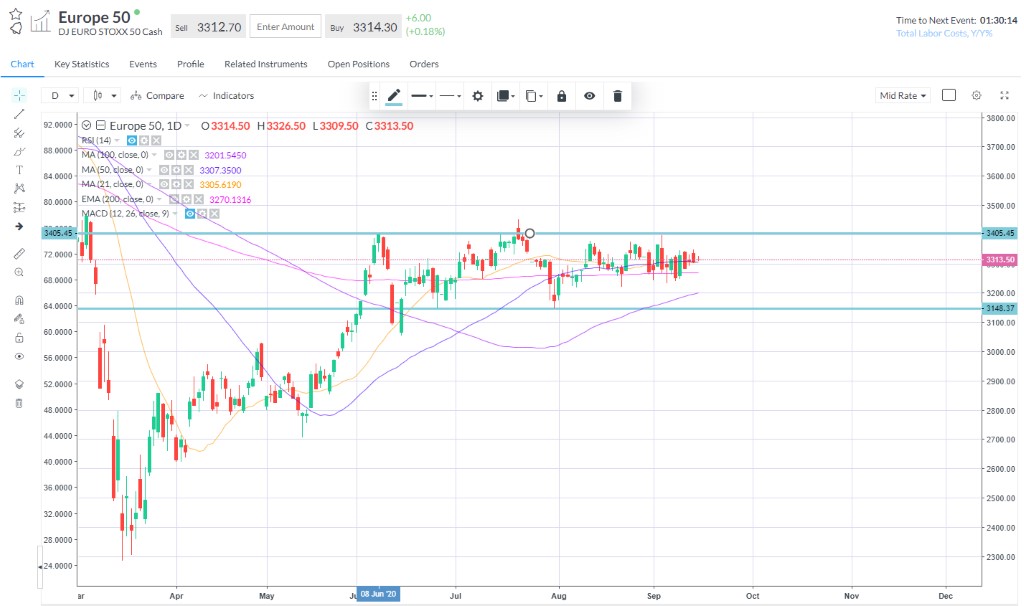
Tuesday Sep 15 2020 08:14

5 min
The question every Ocado shareholder has is whether the M&S tie-up will deliver. The answer so far, just a couple of weeks into the partnership, seems to be positive. Forward demand is strong, and management say adding M&S products has increased the average basket by around 5 items.
We should question though whether the novelty of getting Percy Pigs in your online shop will last.
Retail revenues – pre-M&S – accelerated from +27% in H1 to +52% in Q3 as the shift to online grocery continues apace, with the number of orders on a weekly basis up almost 10%. UK grocery sales rose 10.8% in the 12 weeks to September 6th, according to Kantar, which indicates Ocado is significantly outperforming. Shares in Ocado jumped over 6%, whilst MKS rose over 5% to 110p.
Of course, Ocado shares don’t trade on such lofty multiples because it runs a successful UK grocery business, but on expected recurring revenue streams from international partners. These have been slow to materialise and there was no further communication in today’s update.
Earnings from international partners remain slow to emerge and in July management cautioned that EBITDA from International Solutions would decline due to ‘continued investment in improving the platform and building the business, and from increased support costs with launch of initial CFC sites’.
Despite this jump in retail revenues, management can only promise full-year EBITDA of £40m. The problem for Ocado is it takes a long time to get a return from building costly fulfilment centres, while Marks will find out that it’s very hard to translate online grocery sales into profits.
On those Kantar numbers, it is worth noting that growth in supermarket sales decelerated in August because of the Eat Out to Help Out scheme, with sales down £155m compared with the July period. Shares in Tesco rose, while those in Sainsbury’s and Morrison fell.
UK unemployment rose to 4.1%, in a clear signal that the labour market is coming under increasing strain. According to the ONS, the number of employees in the UK on payrolls was down around 695,000 compared with March 2020. The claimant count rose to 2.7m, which is an increase of 120% from March levels. Over 5m people remained in furlough in July – how many are coming back?
Boris’s internal market bill cleared its first hurdle in the House of Commons but 30 Tory MPs abstained, hoping to water it down. The EU retaliated by delaying its decision on allowing the City to continue clearing billions of euros every day in derivatives. London dominates the market but Paris and Frankfurt would both like a larger slice – of course you cannot strip it out of London very easily so this looks more like the European Commission flexing its muscles.
GBPUSD was steady in the middle of its range around 1.2860 having struck a high at 1.2920 in afternoon trading yesterday. Support to be found on the recent lows put in around the 200-day EMA at 1.2750.
European stocks faltered a bit after opening in the green, indicative really of the whole summer. The Euro Stoxx 50 neatly shows how European blue chips have drifted since June.

US stocks pushed up yesterday, with the S&P 500 pushing higher by 1.27% and every sector in the green. The Nasdaq was up almost 2%. Tesla shares rocketed 12%, while Nikola was up 11% before plunging 8% in after-hours trade.
Nikola responded to the Hindenburg research note but it seemed to me to be a rather weak defence with the company’s own promo videos on YouTube served up as ‘evidence’.
Elsewhere, G4S shares were a little weaker this morning but largely held yesterday’s gains after the unsolicited approach from Garda World. A lengthy statement this morning rejects the offer in no uncertain terms, with management saying that the ‘highly opportunistic’ bid significantly undervalues the business. They go on to outline a detailed financial case on why they should not be bought.
Whilst the 190p offer represents a 31% premium to the undisturbed 145p the stock was trading at before the news broke, this only really recovers pandemic-related depreciation and G4S is probably right to demand a lot more for solid business that generates about £7bn in sales annually.
Always interesting to see how a company deleveraging (G4S reduced net debt to EBITDA from 3.27x in 2015 to 2.58x today) makes you more appealing to a leveraged buyout, in which GW is a specialist.
